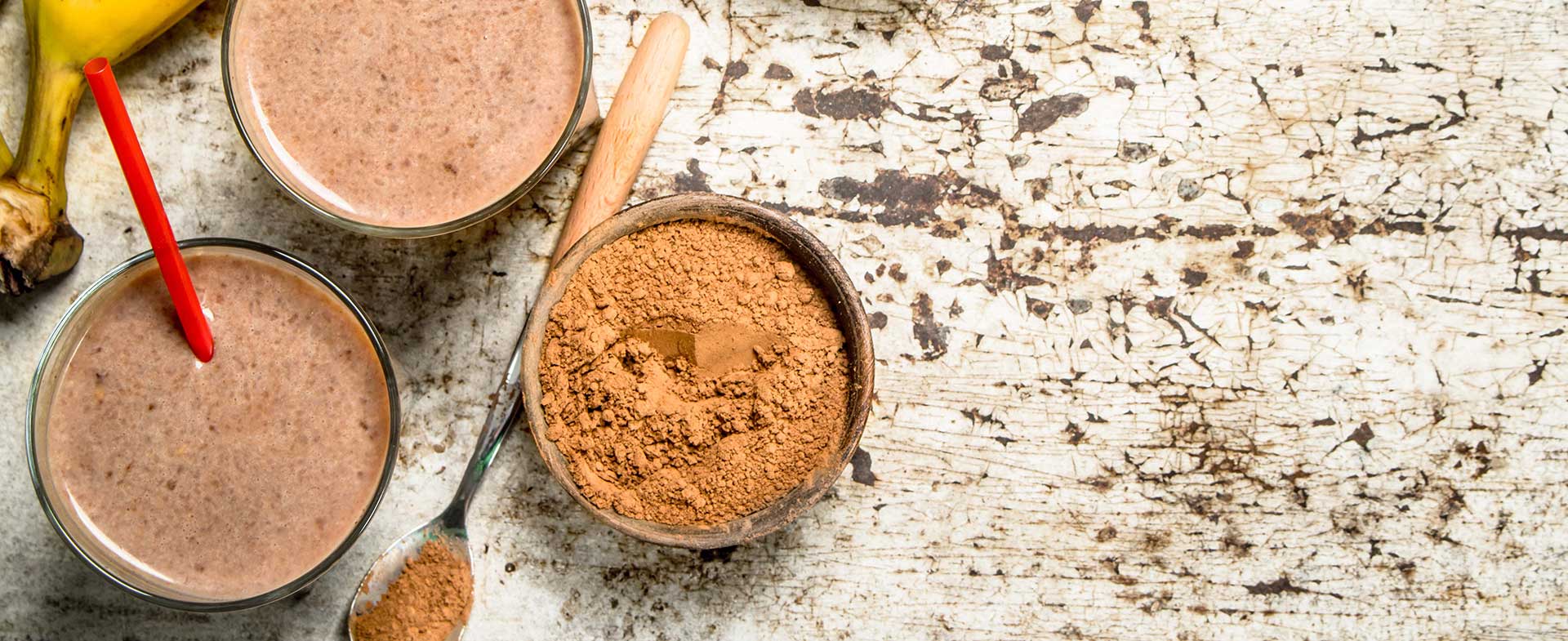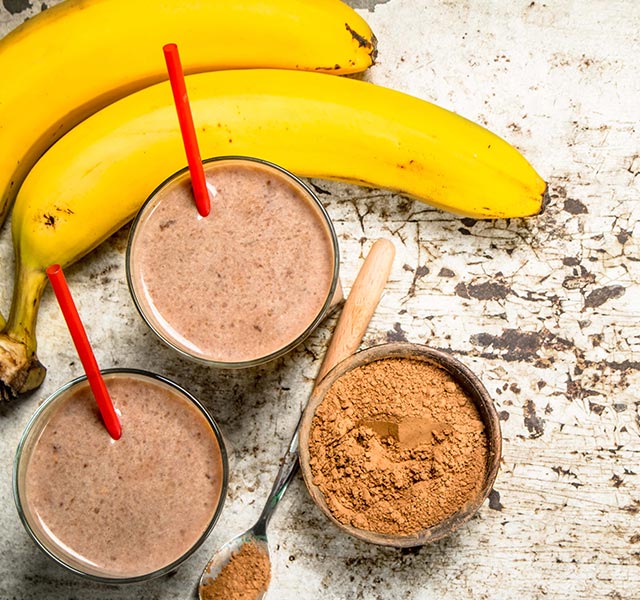Protein powders are frequently touted as must-have fuel for everyone from professional athletes and bodybuilders to executives who are too busy to sit down for a full meal. The thinking goes something like this: Since protein is required for muscle building and repair, supplementing your diet with it will help you become strong and fit.
But does supplemental protein powder really help people achieve their end goals? “It depends,” says Halle Saperstein, a registered dietitian at Henry Ford Health.
While the elderly, immune compromised and high-powered bodybuilders may benefit from protein supplements, the rest of us can get all the protein we need through typical food sources, such as lean meat, dairy, beans, legumes, nuts and seeds.
Breaking Down Protein Powders
Protein is the essential building block for muscle, tissue, bones and blood. Protein powders usually contain dehydrated proteins from milk, soy or plants like pea and hemp. They’re also typically low in calories. Just mix them with water or toss them in a blender as a protein base for smoothies or shakes.
But it’s hard to know what you’re getting with these supplements. There’s no agency that routinely tests protein powders for safety and efficacy. “Protein powders are considered supplements, and as such are not subject to regulation by the Food and Drug Administration,” Saperstein says.
Equally concerning, these powders often contain other ingredients that could compromise your health. A few standouts:
- Toxins: Many of these products boast claims like “all natural” and “organic.” Some even promise dramatic and immediate results. But most powders (organic or not) contain concerning levels of contaminants, including lead, cadmium and arsenic.
- Sweeteners: Sugar, stevia and artificial sweeteners are common ingredients in protein powders. If the sweetener contains calories (like sugar), the product can lead to weight gain. Trouble is, sweeteners may be tough to decode on the label. Look for words like “syrup solids” and steer clear of powders that contain more than 150 calories and 3 grams of sugar per serving.
- Stimulants: Some protein powders contain stimulants or even steroids. Be wary of product claims such as “rapid muscle gain,” or “lose fat in 10 days.”
A Buyer’s Guide to Protein
The recommended daily allowance (RDA) for protein is only 0.8 grams per kilogram of body weight (or 0.36 grams per pound of body weight). So, if you weigh 140 pounds, you only need 50 grams of protein each day. That’s the protein in 3 ounces of lean meat plus a cup of Greek yogurt or one cup of lentils, a low-fat cheese stick and 17 cashews. When you eat real food like this, you’ll also get additional nutrients that you won’t find in a powder. What’s more, protein from these sources is better absorbed than anything you can get from a powder or protein bar.
If you’re still convinced protein powders have a place in your diet, it’s important to have a strategy in mind when you buy. A few tips:
- Scan the ingredients list: When you’re comparing protein powder products, pay close attention to the ingredients list. It’s important to know exactly what else is in your powder. Look closely for additives like caffeine, creatine, and natural and artificial sweeteners. Each of these ingredients has drawbacks.
- Read the nutrition facts: In addition to making sure you’re getting the optimal amount of protein (not too much and not too little), reviewing the nutrition facts label can provide important information about other nutrients, including carbohydrates and sugar. Some high-powered powders boast more than 23 added grams of sugar per scoop.
- Pick your protein: If you have an option of protein type, choose whey or pea. Whey contains all nine essential amino acids — essential because your body can’t make them — and pea protein contains eight of the nine. “There’s evidence to suggest that whey and pea protein are better for muscle repair and rebuilding than proteins like soy and casein,” says Saperstein.
- Toss in nutrient-rich extras: Making a protein shake? Mix in high-powered ingredients such as leafy greens, berries, flaxseed and nuts. All of these foods provide essential vitamins and minerals that can help enhance recovery and muscle building.
Eating post-workout protein is tried and true advice. Does it matter if you get it from a glass of milk, a tuna fish sandwich or a protein shake? Right now, scientists aren’t sure, so the best advice is to opt for real food whenever possible — and spread meals containing protein throughout the day.
To find a doctor or registered dietitian at Henry Ford, visit henryford.com or call 1-800-HENRYFORD (436-7936). You can also learn more about nutrition services available at Henry Ford.
Halle Saperstein, RD, is a clinical dietitian at Henry Ford West Bloomfield Hospital and enjoys teaching the importance and benefits of a healthy diet.



